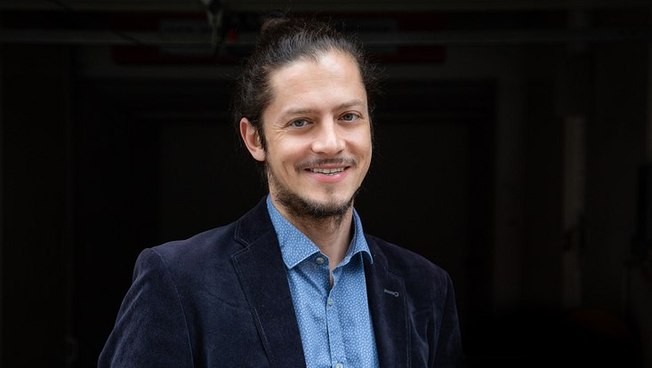27 April 2023
Funding for Prof. Dr. Stefan AykutNew Endowed Professorship for Climate Change and Society at Universität Hamburg

Photo: Universität Hamburg / Ohme
Thus far, analyses on climate protection have focused primarily on technical and economic aspects. Together with his colleagues at the Cluster of Excellence Climate, Climatic Change, and Society (CLICCS), Aykut has been looking instead at social factors, including, for example, climate protests, climate law suits, and consumption patterns, and how these influence social transformation. In doing so, he is also establishing a new field of research in the Faculty of Business, Economics and Social Sciences—an area that Universität Hamburg will continue to foster after the 5-year funding period financed by the Stiftung Mercator.
The new findings will be used to raise awareness among policymakers, relevant stakeholders, and in the media with regard to societal processes and climate protection. “Currently, Germany is not managing quickly enough to reduce the emission of greenhouse gases in the transportation and building sectors,” explains Dr. Lars Grotewold, head of the climate protection section at Mercator. “Aykut’s work will yield concrete recommendations for policies on social processes in order to further promote decarbonization.”
“I congratulate Prof. Dr. Stefan Aykut on this special funding. His research has already provided inspiration within the CLICCS cluster of excellence and in the Faculty of Business, Economics and Social Sciences. The annual study addressing the question of whether and how Germany can reach its climate protection goals is just as important. I also thank the Stiftung Mercator for making this highly socially relevant research area more permanent and enabling us to expand on it,” said Prof. Dr. Hauke Heekeren, president of Universität Hamburg.
According to a preliminary study conducted by CLICCS, we are unlikely by 2050 to globally eradicate all CO2 emissions. None of the 10 drivers in the study was sufficiently dynamic. The necessary technology is already available in many sectors, but social factors prevent application.
About Prof. Dr. Stefan Aykut:
Stefan Aykut studied social sciences at Freie Universität Berlin, the Sabanci University Istanbul, and the Ecole des Hautes Études en Sciences Sociales in Paris, where he received his doctorate in 2012. Since 2017, he has been a junior professor of sociology at Universität Hamburg. In his research, Aykut links concepts and methods from sociology, political science, and the history of knowledge to understand the social and political nature of ecological crises and conflicts. In his publications, he looks at international climate governance and global economic conflicts such as the energy transformation in German, France, and Europe. In 2019, the German Research Foundation awarded him the Heinz Maier-Leibnitz Prize for Natural Scientists.
About the Stiftung Mercator:
The Stiftung Mercator is a private, independent foundation based on scientific expertise and practical project experience. It is committed to openness, solidarity, and equal opportunity. To reach these goals, it fosters and develops projects that facilitate participation and cohesion in an increasingly diverse society.
